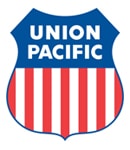 The Federal Railroad Administration is proposing to improve the integrity of passenger train exterior side door safety systems and promote passenger train safety overall through new safety standards relating to the safe operation and use of passenger train exterior side doors.
The Federal Railroad Administration is proposing to improve the integrity of passenger train exterior side door safety systems and promote passenger train safety overall through new safety standards relating to the safe operation and use of passenger train exterior side doors.
This proposed rule is based on recommended language developed by the Railroad Safety Advisory Committee’s (RSAC) General Passenger Safety Task Force and includes new requirements for both powered and manual exterior side doors and door safety systems on passenger trains.
Proposed operating rules for train crews relating to exterior side doors and their safety systems on passenger trains as well as new definitions are also included in this NPRM. In addition, the rule proposes to incorporate American Public Transportation Association’s (APTA) “Standard for Powered Exterior Side Door System Design for New Passenger Cars,” which contains a set of minimum standards for powered exterior side door systems and door system functioning on new rail passenger cars and locomotives used in passenger service.
Other proposed requirements include, but are not limited to: Equipping new passenger cars with powered side doors with an obstruction detection system and a door by-pass feature; connecting new passenger cars with either manual or powered exterior side doors to a door summary circuit to prohibit the train from developing tractive power if any of the exterior side doors are open; safety briefing for train crews to identify crewmember responsibilities as they relate to the safe operation of the exterior side doors; operating passenger trains with their exterior side doors trap doors closed when in motion between stations, except in limited circumstances or if prior approval has been received from FRA; and railroads developing operating rules on how to safely override a door summary circuit or a no-motion system, or both, as well as how to safely operate the exterior side doors of a passenger train with incompatible exterior side door safety systems.
Through this rulemaking, FRA intends to limit the number and severity of injuries associated with the use and operation of passenger train exterior side doors and increase the overall level of safety for passengers and train crewmembers.
FRA analyzed the economic impacts of this proposed rule against a “no action” baseline that reflects what would happen in the absence of this proposed rule. The proposed operating rules and adopted APTA standard for new equipment are expected to prevent about 19 injuries and 0.20 fatalities per year in the future on average, based on similar incidents in the past. The estimated benefits from these prevented casualties over a 20-year period total $81.9 million undiscounted; these estimated benefits have a present value calculated using a 7 percent discount rate of $42.4 million, and a present value calculated using a 3 percent discount rate of $60.3 million.
Given that some procedural and equipment errors may still occur in the future, the analysis assumes a 50 percent effectiveness rate in preventing these types of injuries and fatalities. In addition, there may be other benefits from the proposed rule, such as fewer passenger claims for personal property damage, maintaining passenger goodwill and trust (by reducing these low-frequency but typically highly-publicized incidents), and by lowering future maintenance costs (through encouraging the replacement of older equipment with new passenger cars equipped with more reliable door safety systems).
FRA also quantified the incremental burden of the proposed rule upon commuter and intercity passenger railroads. The primary contributor to the estimated costs is the train crew’s task of verifying that the door by-pass devices on the train are sealed in the normal non-by-pass mode, a requirement in the proposed operating rules. The door by-pass devices are used to override door safety systems in certain circumstances, for example, allowing a train to develop tractive power and complete its route.
The second greatest cost factor is the estimated cost to implement some of the proposed door safety features on new passenger cars and locomotives used in passenger service with either powered or manual doors. The estimated costs over the 20-year period of analysis total $15 million undiscounted, with a present value calculated using a seven percent discount rate of about $8 million, and a present value calculated using a three percent discount rate of about $11.2 million. The proposed rule incurs relatively small costs because most of the initial burdens are expected from changes to railroad operating rules.
The design standards for door safety systems apply to new passenger cars and locomotives used in passenger service where they can be installed cost-effectively.
These costs and benefits result in net positive benefits over 20 years of about $67 million.
To read the complete rule proposal, click here.
 WASHINGTON – President Barack Obama, March 20, signed an executive order creating a second Presidential Emergency Board to help resolve an ongoing dispute between the Long Island Rail Road and some of its unionized employees.
WASHINGTON – President Barack Obama, March 20, signed an executive order creating a second Presidential Emergency Board to help resolve an ongoing dispute between the Long Island Rail Road and some of its unionized employees. WASHINGTON – The nation’s freight rail industry this week will outline for the Surface Transportation Board (STB) the various negative impacts of a proposal to force non-market based requirements on railroads at the request of the National Industrial Transportation League (NITL). The proposal calls for the STB to override market forces by forcing Class I railroads to turn over to their competitors substantial portions of rail traffic which moves across tracks they own and have spent billions to build, maintain, and upgrade so taxpayer’s don’t have to.
WASHINGTON – The nation’s freight rail industry this week will outline for the Surface Transportation Board (STB) the various negative impacts of a proposal to force non-market based requirements on railroads at the request of the National Industrial Transportation League (NITL). The proposal calls for the STB to override market forces by forcing Class I railroads to turn over to their competitors substantial portions of rail traffic which moves across tracks they own and have spent billions to build, maintain, and upgrade so taxpayer’s don’t have to.
 SAUGET, Ill. – Train conductor Barry Norman, a fifth-generation railway worker, climbed aboard the cab of a yellow and black locomotive with Union Pacific in bold red lettering. He along with Engineer Steve Burrow and Alton & Southern Railway Co. Police Chief Lindell Barton offered special rides Monday (March 24). Their goal – and those of others involved – was to save lives.
SAUGET, Ill. – Train conductor Barry Norman, a fifth-generation railway worker, climbed aboard the cab of a yellow and black locomotive with Union Pacific in bold red lettering. He along with Engineer Steve Burrow and Alton & Southern Railway Co. Police Chief Lindell Barton offered special rides Monday (March 24). Their goal – and those of others involved – was to save lives.